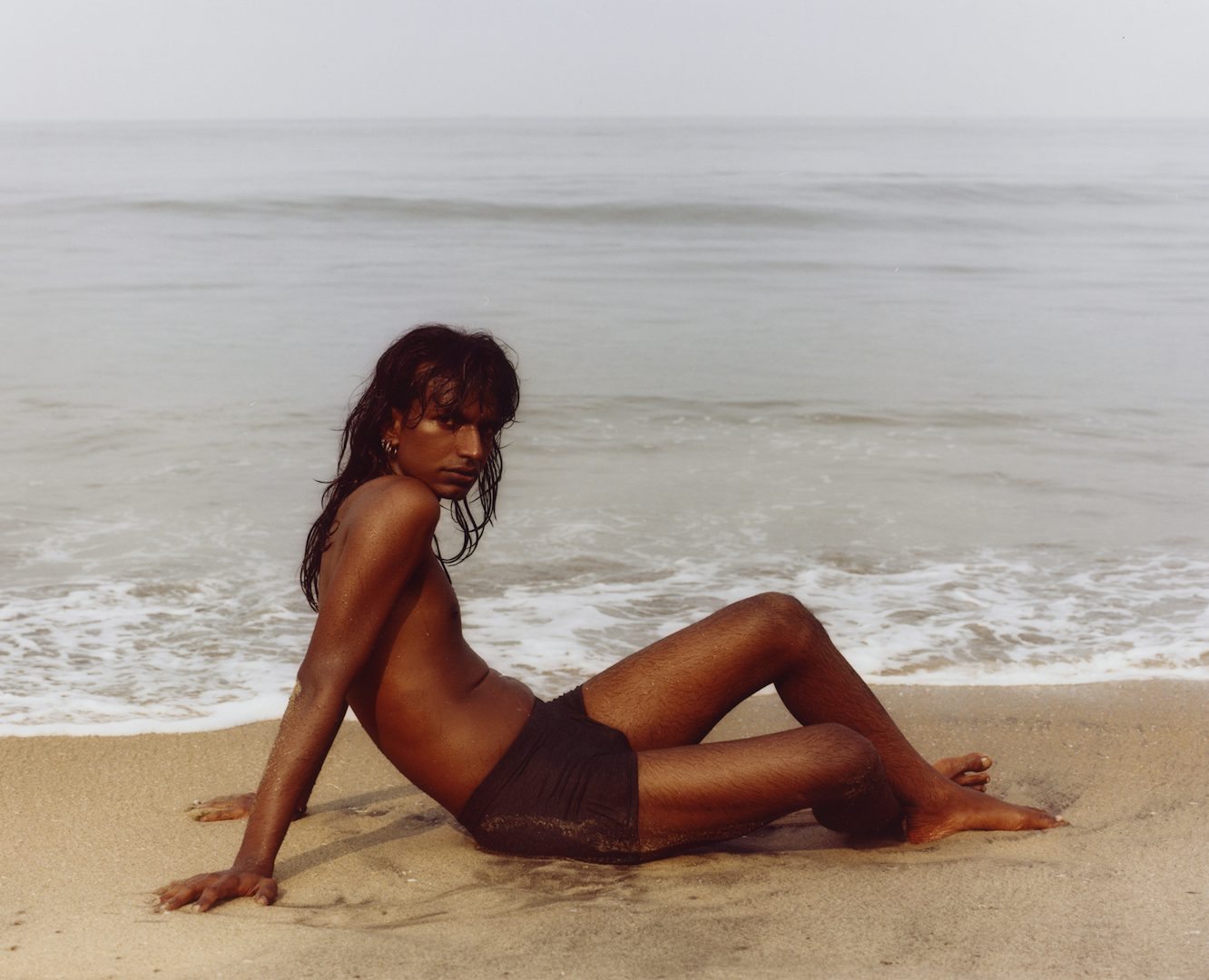Exposure: Keerthana Kunnath
Gem Fletcher talks to the photographer about her work, which challenges perceptions of women in sport, and the social stigma around women’s bodies
Earlier this year, the London-based South Indian photographer Keerthana Kunnath happened upon 30-year-old female bodybuilder Arathy Krishna on Instagram during research into the Indian martial art Kalari. “I’d obviously seen bodybuilders from other countries before, but there was something about Arathy that captivated me,” explains Kunnath about their first encounter.
“She has this duality of strength and grace. Most poignantly, she looked like one of us! She’s the girl next door but with this incredible muscular physique.” To Kunnath’s surprise, hours of research uncovered more female bodybuilders dotted across Kerala and Bangalore, and after getting to know the women online, she set out on a road trip across the country to meet them.
Kunnath knew early on that this project required a storytelling approach that went beyond straight documentary. Rather than photograph the bodybuilders at the gym or in a domestic setting, she photographed them against quintessential Keralan backdrops from serene beaches to quiet streets, giving the series an auspicious energy.
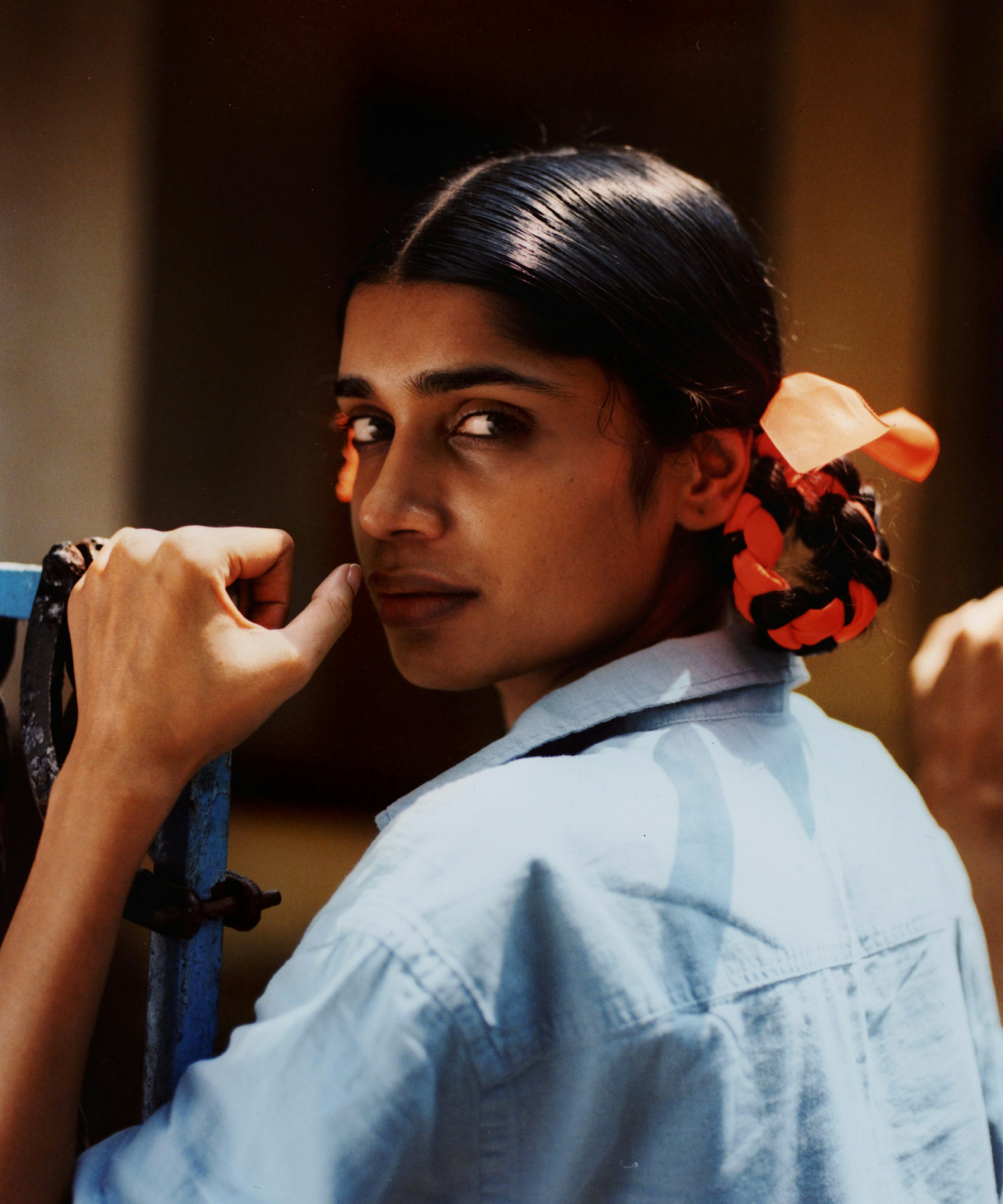
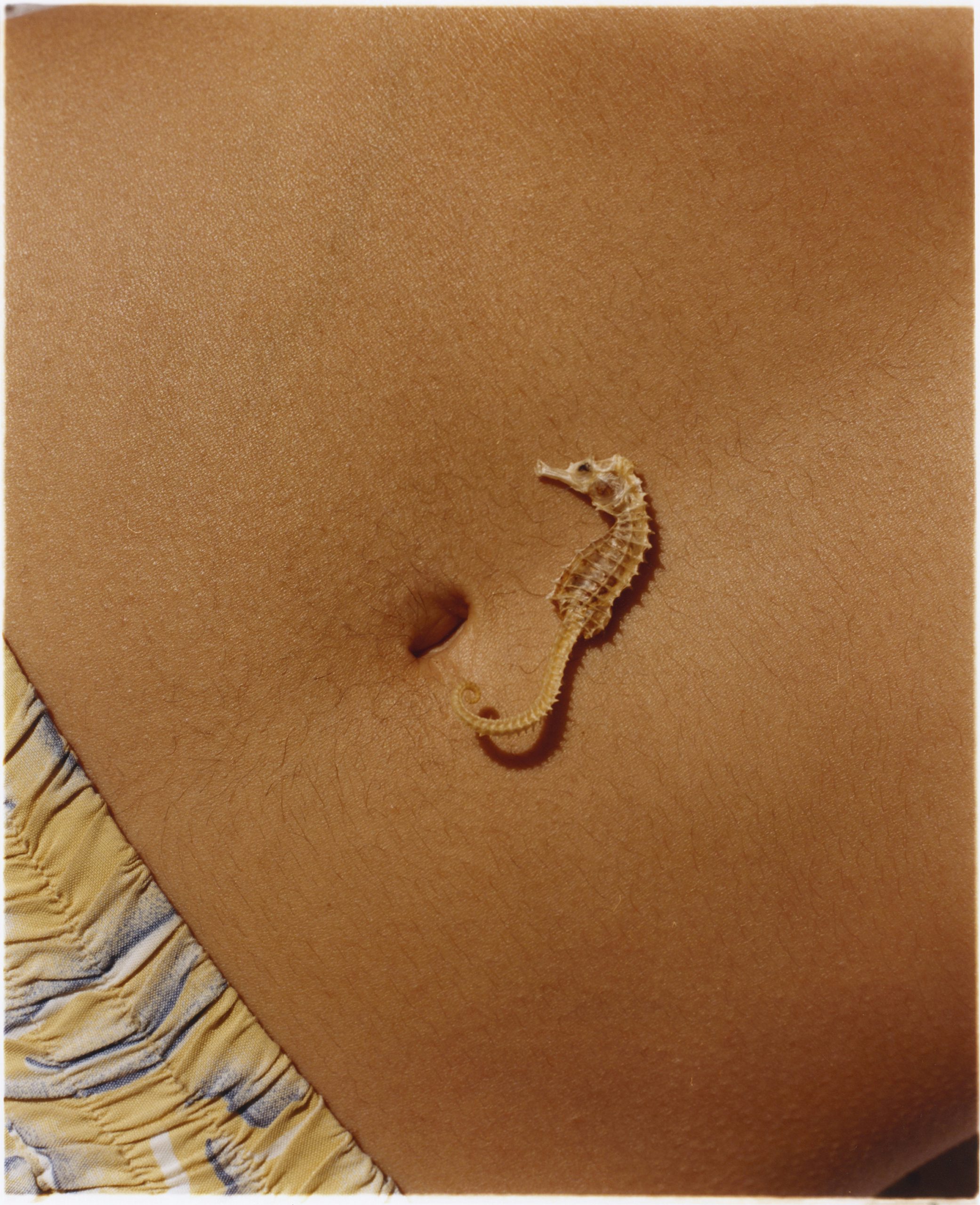
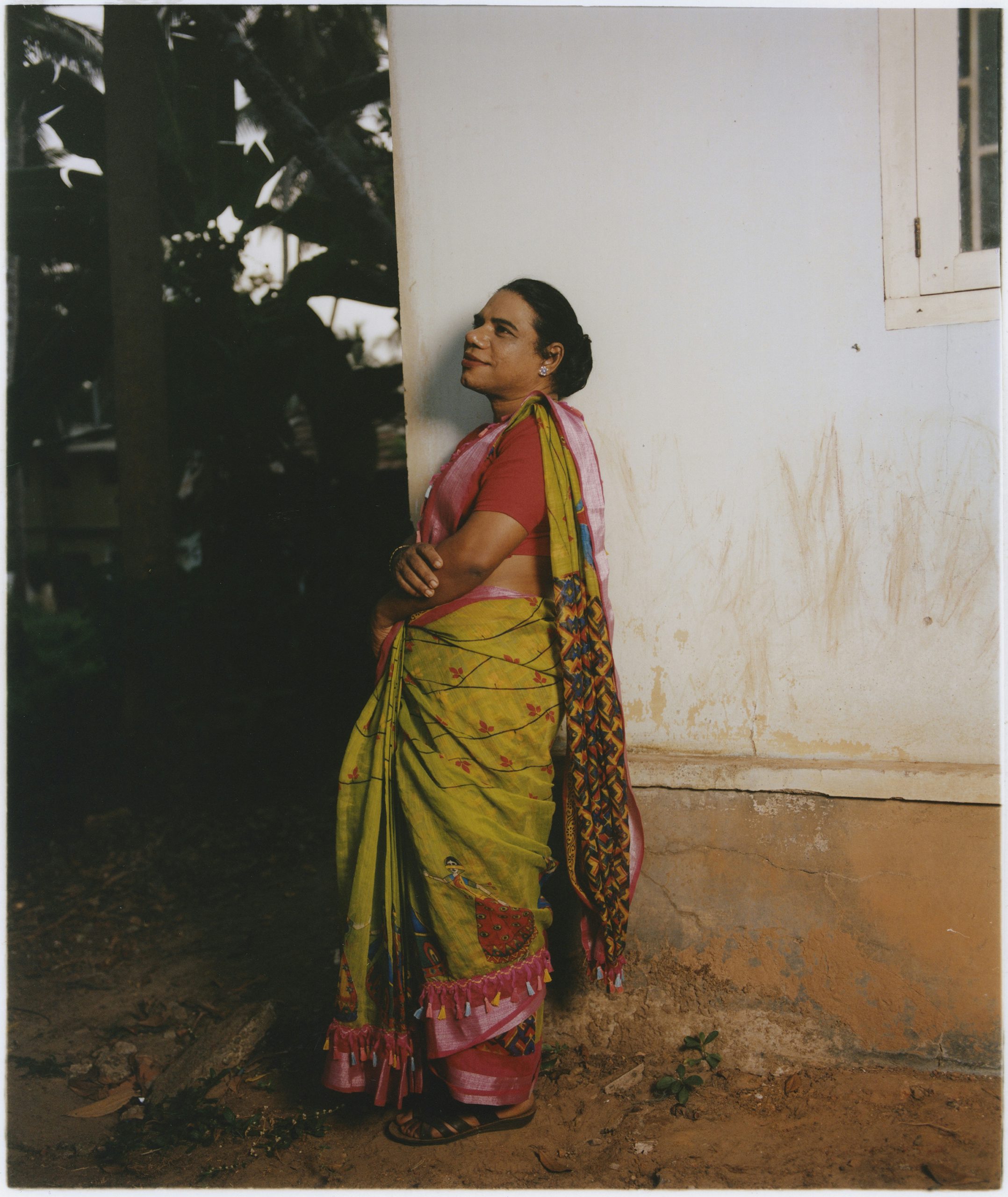
Despite the project being DIY in ethos, Kunnath wanted to bring a fresh perspective to how the women were styled. Working in collaboration with stylist Elton John, they decided to subvert the patriarchal coded femininity in old Malayalam movie posters, reclaiming traditional garments – primarily fabrics and shawls – with contemporary styling coded with meaning and regional significance. The project offered the opportunity to redefine ‘Indianness’ and present a contemporary vision of female power and beauty defined by young women for young women.
“There is so much social stigma around women’s bodies,” explains Kunnath, who also grew up in Kerala. “You are judged or categorised by how you present yourself, no matter what stage we are in our life. Societal expectations put a lot of pressure on women. These bodybuilders have to regularly work around the complex physical and emotional aspects of building and maintaining their physique while fighting the deeply ingrained expectations of how a ‘woman’ should look and what they can pursue as a respectable career. Their presence is unprecedented. Together, they challenge these norms and cultivate a new vision of Indian womanhood.”
Coincidently, Kunnath released the ongoing series Not What You Saw a week before the Algerian boxer Imane Khelif experienced harassment and bullying from pundits during the Olympic Games in Paris, who falsely claimed Khelif was a transgender woman and called for her disqualification due to her high levels of testosterone and her physique.
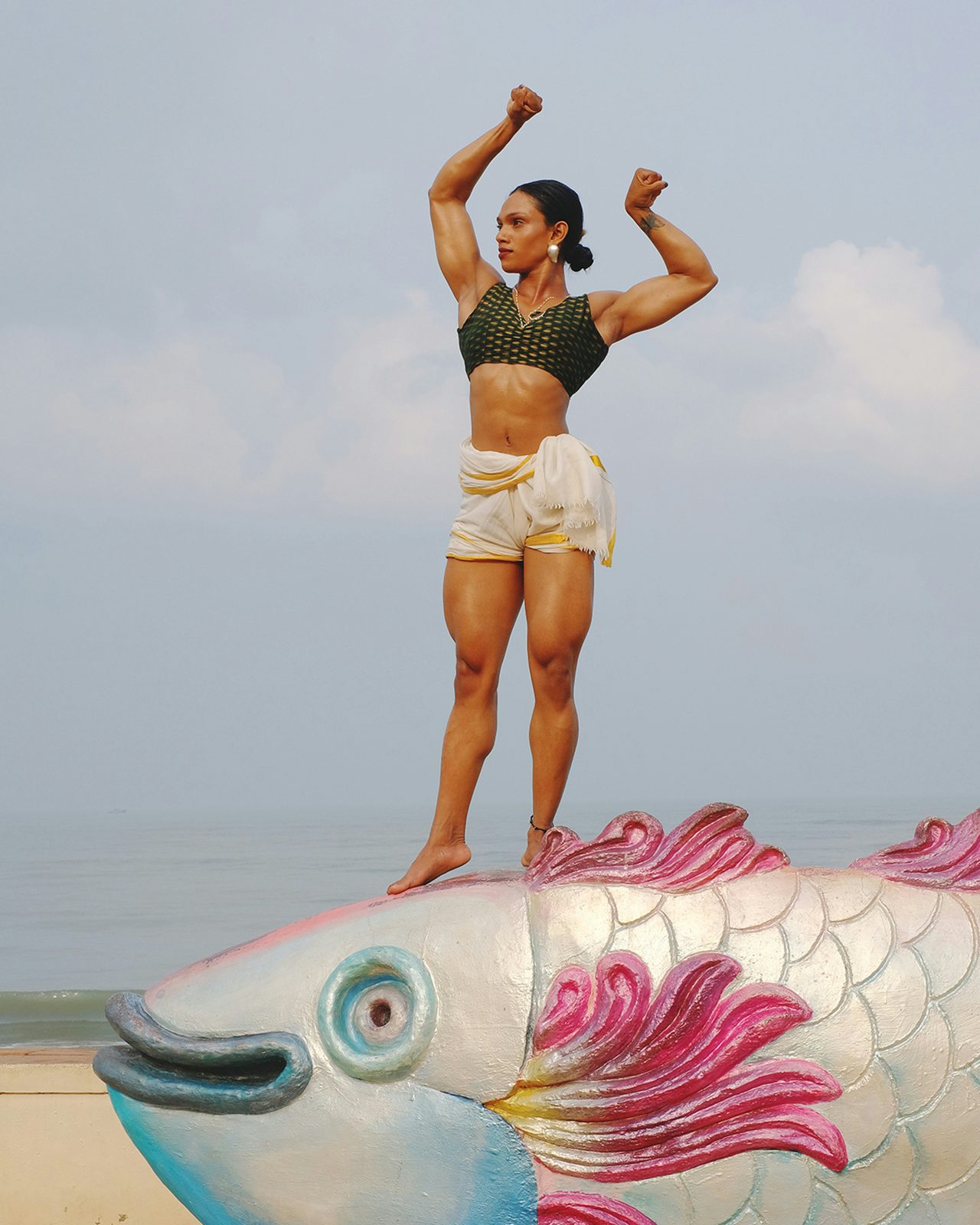
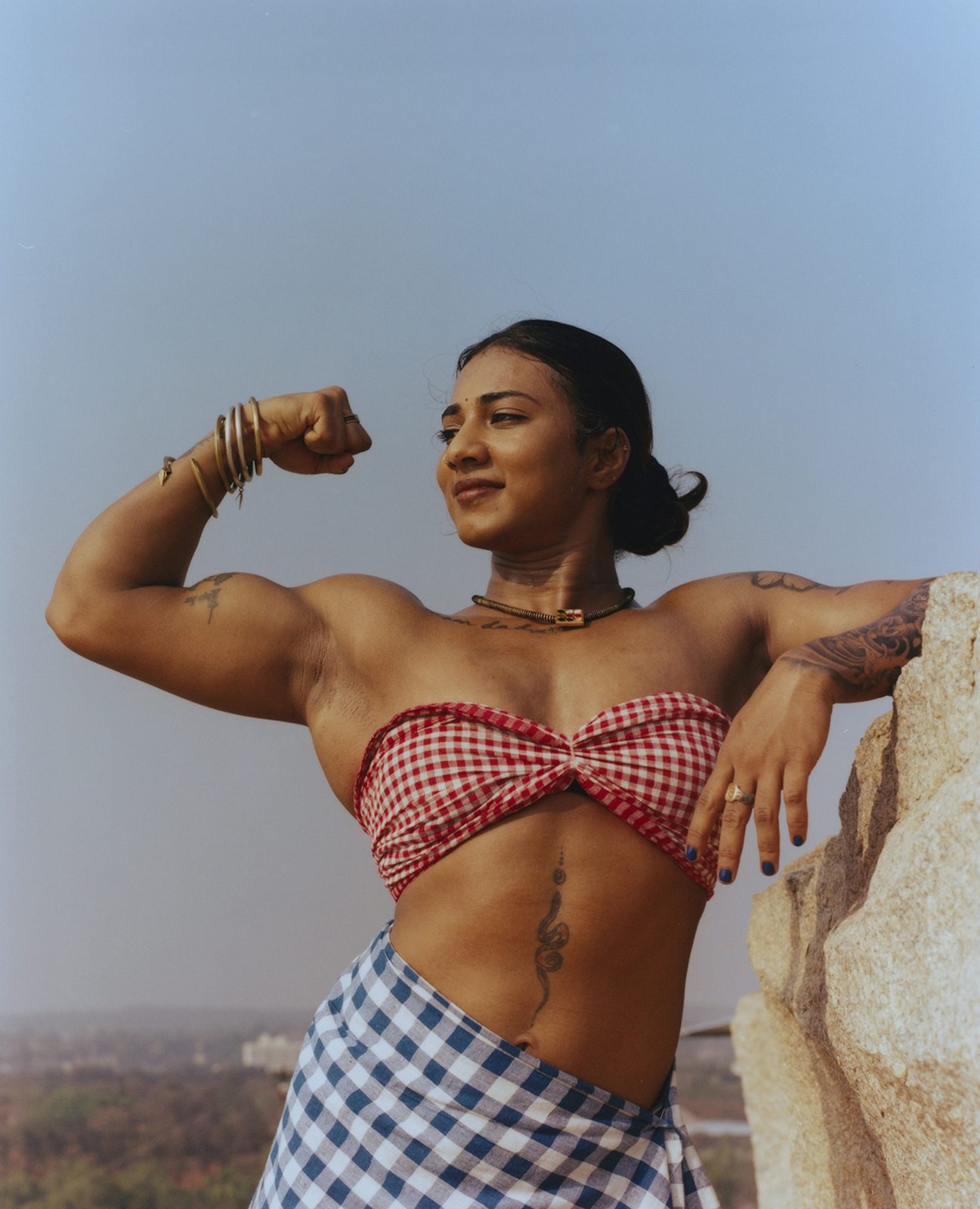
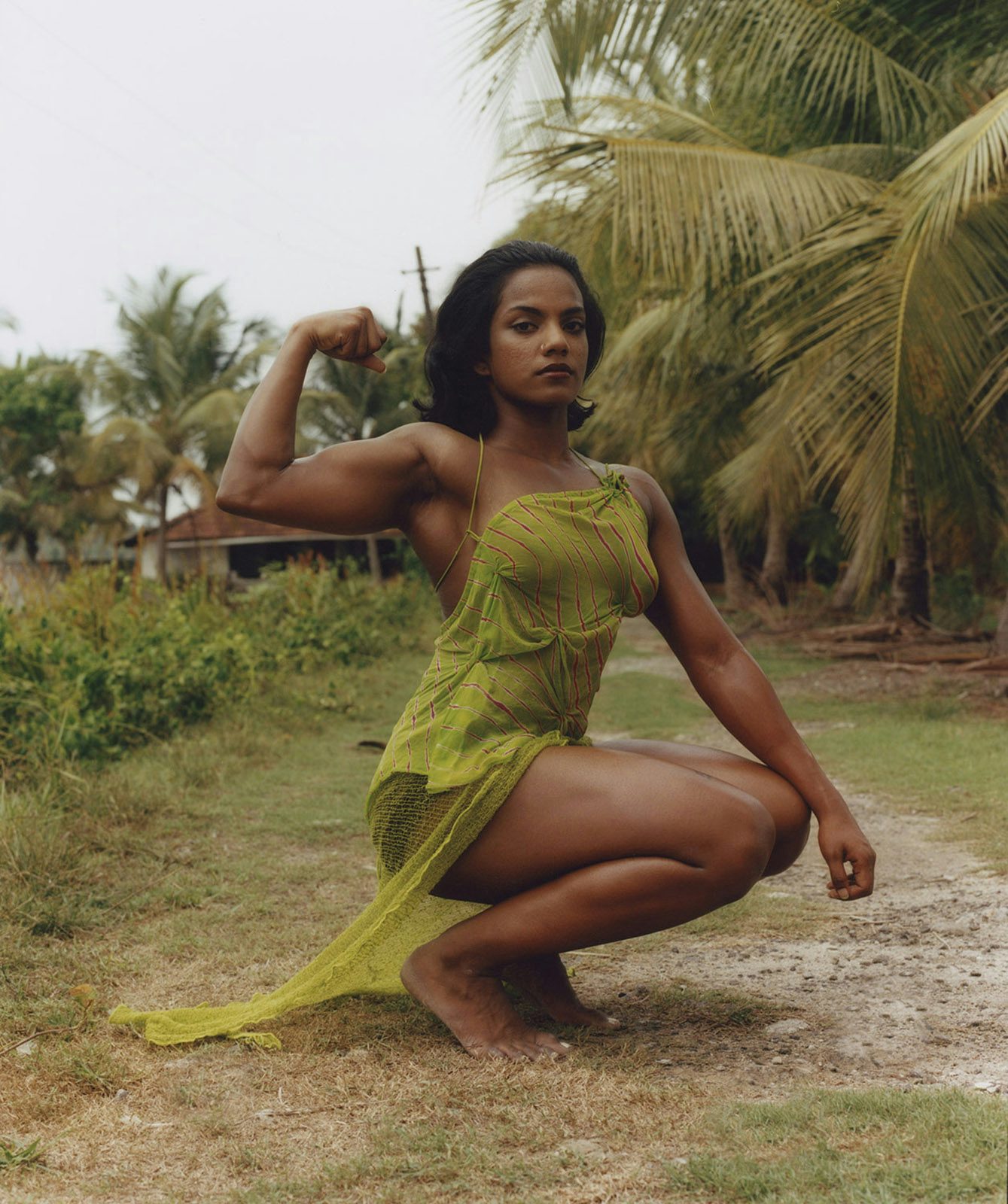
The contentious attack fuelled a wider discussion around the persistent discrimination women face, in particular women of colour, who participate in typically masculine sports and do not fit the popular image of femininity. Timing is everything, and Kunnath’s project went viral, offering a powerful antidote to dusty, conservative ideas about female athletes and their bodies.
The quietly defiant images in Not What You Saw are representative of Kunnath’s wider practice. She embraces the labour of resistance and advocacy through pleasure, love and joy. Her mission is to disrupt the status quo and create an alternative blueprint of existence for Indian women and Queer people.
There is so much social stigma around women’s bodies. You are judged or categorised by how you present yourself, no matter what stage we are in our life
Sitting at the intersection of politics and culture, Kunnath often takes reflections and struggles from her own personal history, reinterpreting them as a mode of empowerment for herself and her community. “I want to use my platform to encourage young women to question the system,” she tells me when I ask her what drives her work. “I want to see them define their own path.”
This year has been productive for Kunnath. Just two years since graduating from the London College of Communication, she has built an impressive roster of editorial and commercial clients, including Apple, the New York Times, Nike, Vogue and Monocle. Her tender yet potent visual language, coupled with a distinct perspective, has enabled her to quickly traverse the worlds of fashion, documentary, and art.
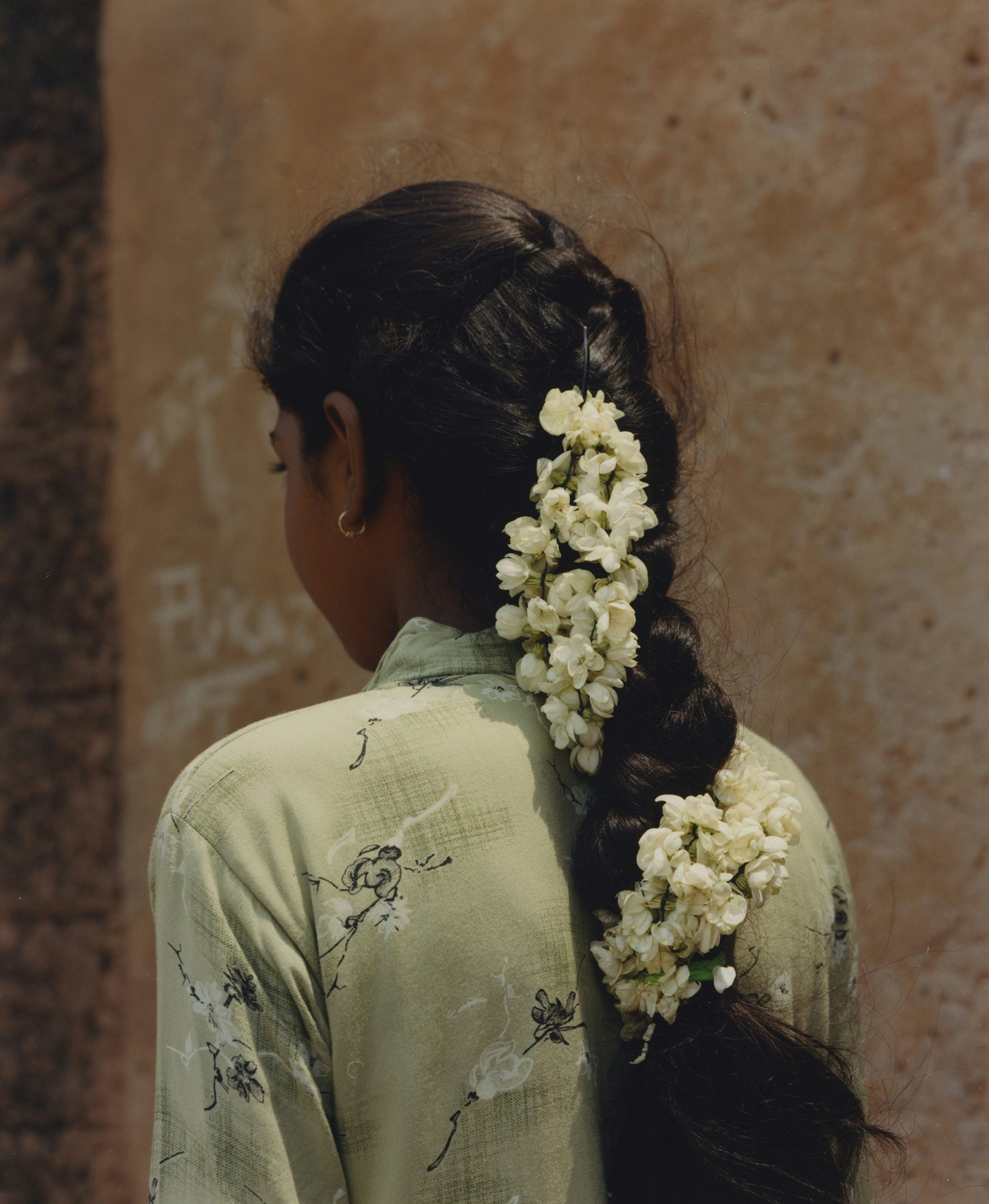
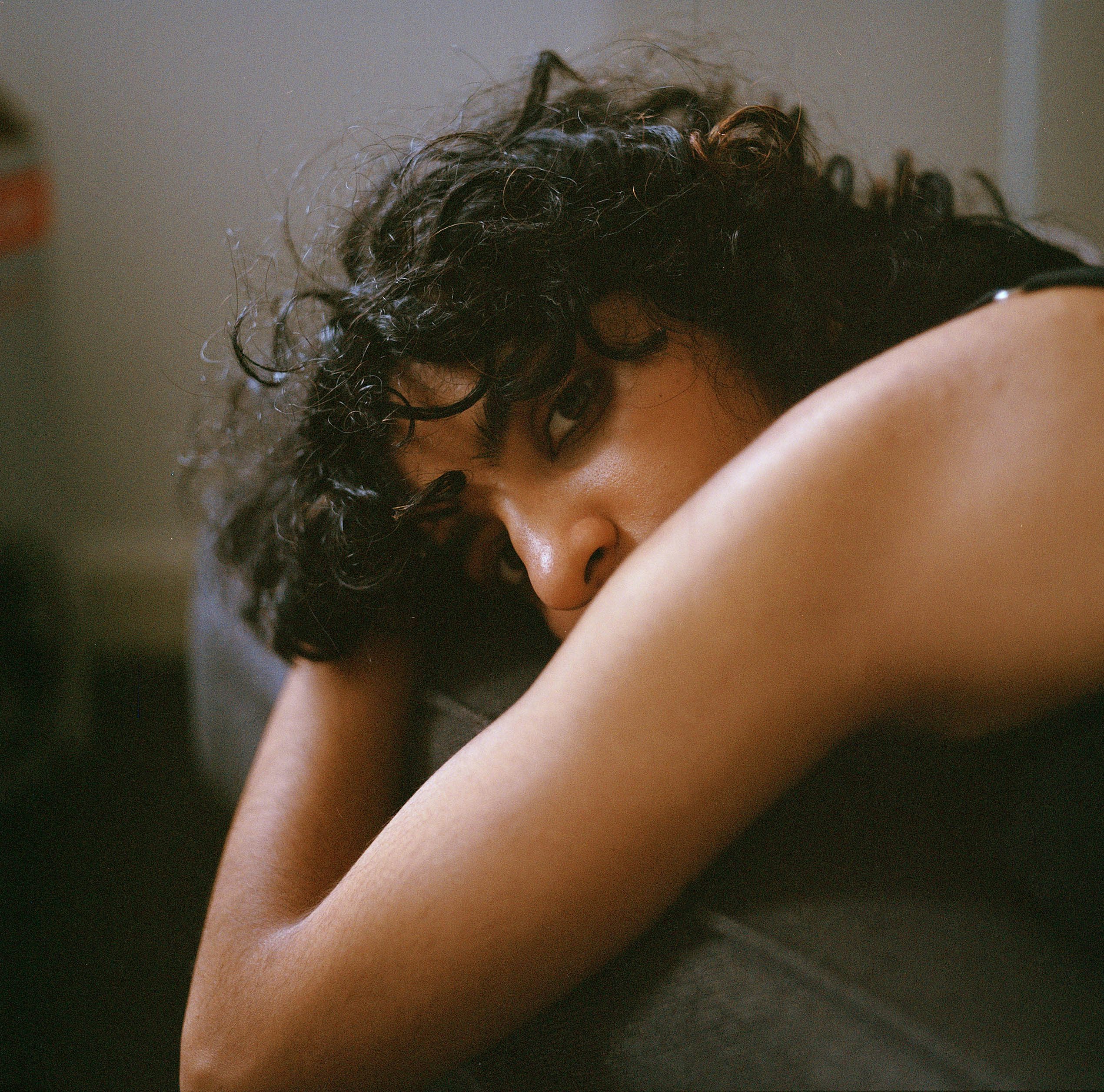
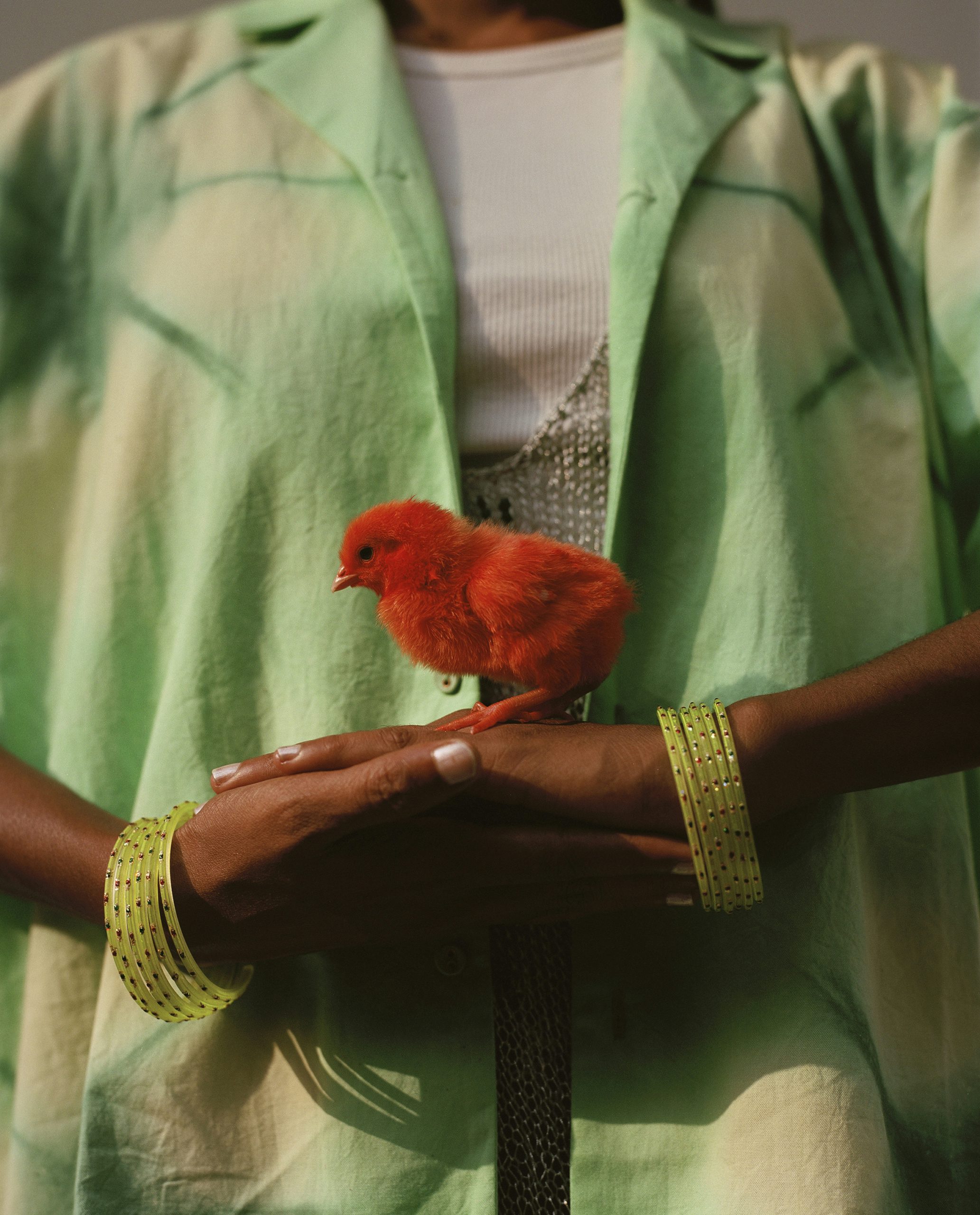
In March, Atmos Magazine published her series Joy of Small Things, a community-based story exploring the transformative power of faith, and most recently, she completed an assignment for T Magazine on Hindu funeral rituals. This range is a testament to her sophistication and tenacity as an imagemaker.
As Kunnath’s practice builds momentum, well-earned accolades and opportunities have followed. She was recently celebrated as one of the British Fashion Council New Wave: Creatives 2024 and landed a spot on Cultured Magazine’s revered Young Photographer List. She also participated in her first formal exhibition, Eyedentity – Queer Perspectives in Art, at German gallery Hase29.
Presented as a double bill with Elliott Nicole J Waller, Kunnath presented work from her series Naadu and Aval, as well as ongoing work tracing the strength of Kerala’s Queer community as they challenge conventional ideas about sexuality and gender. “In many ways, everything I create is for my younger self,” she tells me about her mission. “My work is about building a world where I can belong.”
